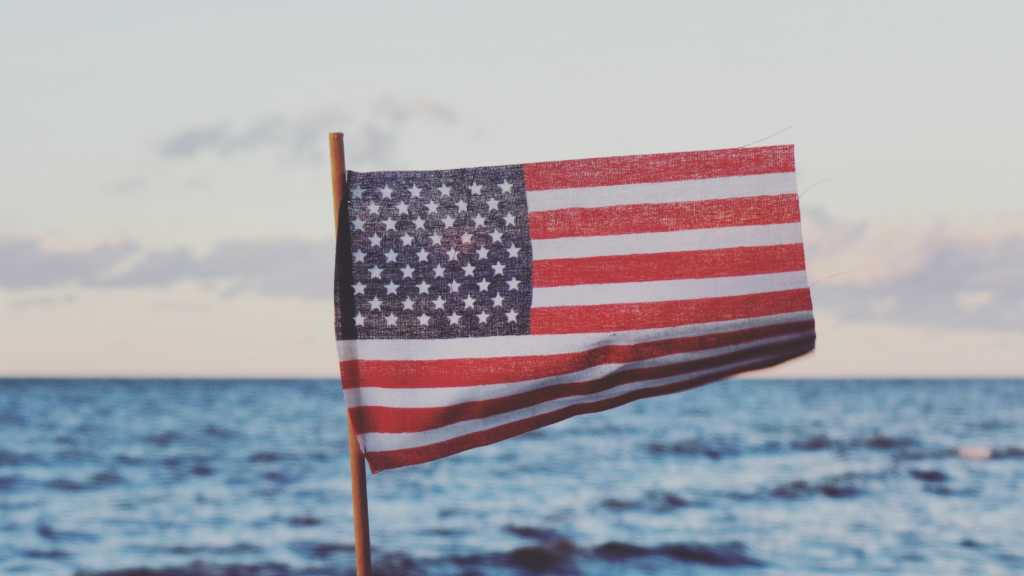It’s a uniquely American experience to see city street corners punctuated by little white churches and roads peppered with flags and bunting, serving as red, white, and blue reminders of where we’ve been and where we’re going. But for some, that harmony — or disharmony — between faith and flag is an imperfect union.
Though many well-intentioned Christians might find the fairly odd couple, well, fairly odd, author and armchair theologian C.S. Lewis saw it as an extension of what Scripture commands of those who are living according to its teachings.
Our patriotism shouldn’t be in contrast to our faith, which reminds us our true allegiance isn’t to country but to Christ; it should be an extension of it.
In Mark 12, when Jesus’ followers asked him which of the commandments is most important, he replied, “Love the Lord your God with all your heart, and with all your soul, and with all your mind, and with all your strength. The second is this: Love your neighbor as yourself. There is no commandment greater than these.”
To be patriotic is to love your country, and to love your country — in the proper context, remembering this home is temporary and flawed — is really just an extension of God’s command to love your neighbor.
“I think love for one’s country means chiefly love for people who have a good deal in common with oneself (language, clothes, institutions) and in that is very like love of one’s family or school: or like love (in a strange place) for anyone who once lived in one’s hometown,” Lewis wrote in a letter dated May 25, 1951.
Caring deeply for your country, the English writer went on to note, is a good thing “because any natural help towards our spiritual duty of loving is good and God seems to build our higher loves around our merely natural impulses — sex, maternity, kinship, old acquaintance, etc.”
Lewis referenced fellow 20th century author G.K. Chesterton, writing, “a man’s reasons for not wanting his country to be ruled by foreigners are very like his reasons for not wanting his house to be burned down; because he ‘could not even begin’ to enumerate all the things he would miss.”
Chesterton, in his own book, “Orthodoxy,” emphasized the importance of taking pride and ownership in your home country:
A man belongs to this world before he begins to ask if it is nice to belong to it. He has fought for the flag, and often won heroic victories for the flag long before he has ever enlisted. To put shortly what seems the essential matter, he has a loyalty long before he has any admiration.
Exercising your civic duty as a citizen is much like taking responsibility for your own home. We protect our family — our home — because we love them, even though we never chose them.
Our homeland is not like our house, a place we purchase because we like it and leave when its use has expired. Our home country, just like our family, is something we are loyal to from birth; its value is inescapable and its importance should compel us to constantly improve it.
That’s why our patriotism isn’t in competition with our heavenly allegiance. Love of country — and the unwavering desire to see her and her people flourish — is the fruit of our faith, the love of neighbor put into practice.
Patriotism isn’t blind acceptance, but wide-eyed adoration: an appreciation of what is excellent, what makes us unique, as well as a sober-minded understanding of how we could be better.
Denny Burk, a professor at the Southern Baptist Theological Seminary in Louisville, Kentucky, equated loving your country to loving your imperfect, and at times unhealthy, family:
True patriotism motivates reform and improvement because it is realistic about the nation’s shortcomings. A man may love his mother unconditionally, but that love does not mean that he is indifferent to her if she is a drunk. His love moves him to seek her welfare and improvement.
Lewis suggested our patriotism should flow naturally from our being. People from nations all around the globe treasure their homelands, and that’s exactly as it should be.
“The Frenchmen like café complet just as we like bacon and eggs,” he wrote. “It would not be home unless it were different.”
So as you stroll down — or drive through — your hometown this Independence Day, find solace in your uniquely American experience. And choose to love your neighbor.



